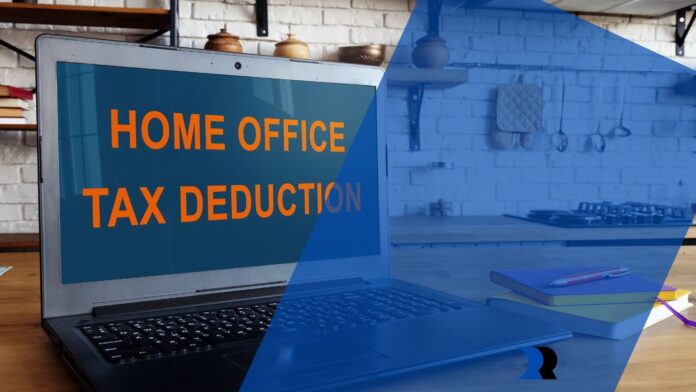Keeping track of your business expenses and maximizing your tax savings can be difficult if you are an independent contractor. For independent contractors, one of the biggest expenses is the upkeep of a home office. Fortunately, you can qualify for a home office deduction, which can reduce your tax liability.
What Is The Home Office Deduction?
Independent contractors can deduct a portion of their home office-related costs from their taxable income thanks to the home office deduction. To qualify for the deduction, you must regularly and solely utilize the space as your principal place of business or as a venue where you interact with patients, clients, or customers while carrying out your regular business. Rent, utilities, insurance, upkeep charges, and office space maintenance fees can all be written off as business expenses for a home office.
Nevertheless, expenses that apply to the entire house, such as mortgage interest or property taxes, cannot be written off. Obtaining the Maximum Home Office Deduction For independent contractors, getting the most out of your home office deduction can be essential for reducing your tax liability and maximizing your savings.
1. Keep Careful Records: To be eligible for the home office deduction, you must keep careful records of all the expenses associated with your workplace. This includes any bills, invoices, or other documentation you need to justify your office spending. Keeping meticulous records throughout the year will make filing IRS taxes much easier when tax season rolls around.

2. Determine the percentage of space that your home office occupies: To correctly calculate your home office deduction, you must determine how much of your house is used for work. This entails calculating the square footage of the workplace and deducting it from the total square footage of your home. The percentage can then be used to calculate the percentage of your total home expenses that can be written off.
3. Simplify Record-keeping: If you want to simplify record-keeping, think about using a program or app that can track your expenses and calculate your home office deduction. There are many options that can help you save the most money possible during tax season while also saving time.
4. Have in mind any deductible expenses: Any deductible expenses connected to your home office should be thoroughly examined. This covers expenses for supplies and equipment for the workplace, as well as maintenance and repairs for the home, in addition to the cost of rent and utilities.
The Benefits Of The Home Office Deduction
The home office deduction can provide a variety of benefits for independent contractors. One of the benefits is:
1. Reduced Tax Burden: By deducting your home office expenses, you can reduce your overall tax liability and save money on taxes.
2. Improved Savings: By properly using your home office deduction, you can increase your savings as a freelancer and finance the growth of your business.
3. Keeping a separate office in your home may help you project a professional image to clients and customers.
4. Increased Productivity: Having a dedicated workspace will enable you to work more productively and successfully, increasing your earnings and assisting in your success as a self-employed individual.
Potential Risks Associated With The Home Office Deduction
There are a variety of benefits that the home office deduction can provide for independent contractors, but there are also potential risks. Some of the risks include:
1. Increased Risk of Audit: You run the risk of an IRS audit if you claim the home office deduction. To reduce this risk, it’s critical to accurately and thoroughly track your home office expenses.
2. The possibility of having a deduction disallowed: If the IRS determines that you are not qualified for the home office deduction, you may be subject to penalties and interest on any deductions that were found to be improper. As a result, your entire tax burden can be significantly increased, posing a financial risk.

3. Expense of Maintaining a Separate Workstation: Maintaining a separate workspace at home can be expensive, especially if you require specialized furniture or tools. It’s critical to carefully compare any possible tax savings with the upkeep costs of a home office.
Conclusion
As a self-employed person, you must optimize your tax deductions and reduce your overall tax burden if you want to be successful and grow your business. The deduction may be a useful tool for increasing your savings and reducing your tax liability. By keeping extensive records, streamlining your record-keeping, and precisely calculating your home office expenses, you can increase your deduction and your savings at tax time. With careful preparation and attention to detail, the home office deduction can provide considerable advantages to self-employed individuals and foster their success as business owners.


